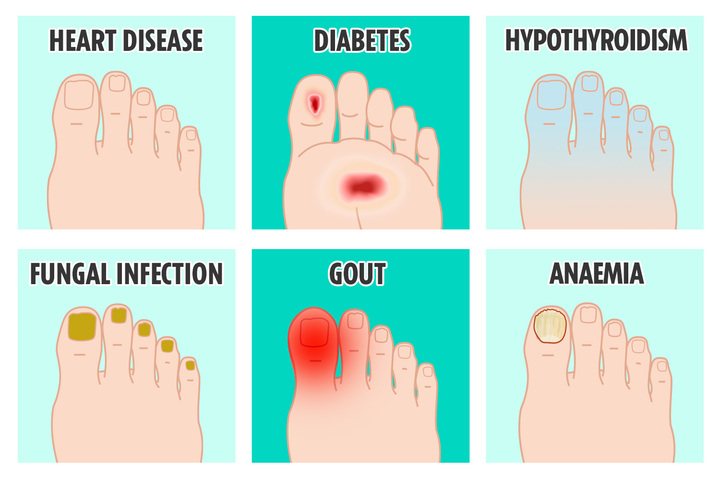
1. Cold Feet
If your feet constantly feel icy — even when the rest of your body feels warm — it could point to a thyroid problem.
The thyroid gland regulates both metabolism and body temperature, so an underactive thyroid (hypothyroidism) can lead to temperature fluctuations and persistently cold extremities.
2. Numb or Tingling Feet
Most of us have experienced that “pins and needles” feeling when our feet fall asleep. But if the tingling or numbness happens frequently or lasts for hours, it may signal peripheral neuropathy — a type of nerve damage.
3. Red, White, or Blue Toes
If your toes change color — turning red, white, or bluish — it could be more than a cosmetic concern. This symptom may indicate Raynaud’s disease, a rare disorder where small blood vessels in your fingers and toes overreact to cold or stress, causing color changes and numbness.
4. Foot Cramps
Occasional cramps are normal, especially after exercise or dehydration. However, frequent or severe foot cramps could signal an electrolyte imbalance or nutritional deficiency — particularly low levels of potassium, calcium, or magnesium.
5. Dry, Scaly Skin
Some dryness on your feet is harmless, especially in cold weather. But excessively dry, flaky, or itchy skin may be a sign of Athlete’s foot, a common fungal infection.
6. Thick, Yellow Toenails
If your toenails are thick, yellowish, or lifting away from the nail bed, you may have a fungal nail infection (onychomycosis).
7. Pitted Toenails
Tiny dents or pits in the surface of your toenails are often caused by psoriasis, a chronic autoimmune skin condition that affects nail growth. In fact, about half of all people with psoriasis experience nail pitting.
8. Enlarged or Painful Big Toe
If your big toe suddenly swells, becomes painful, or looks red and shiny, it could be a sign of gout — a type of arthritis caused by a buildup of uric acid crystals in the joint.





